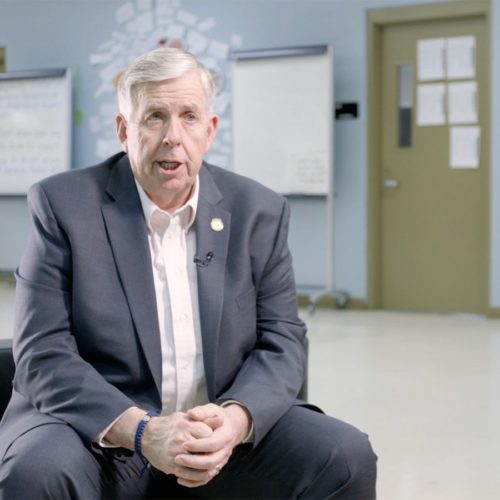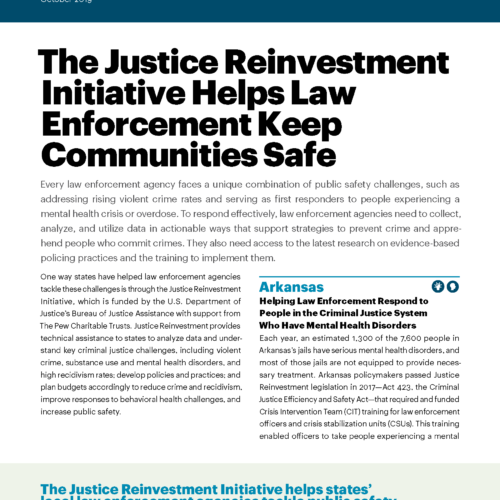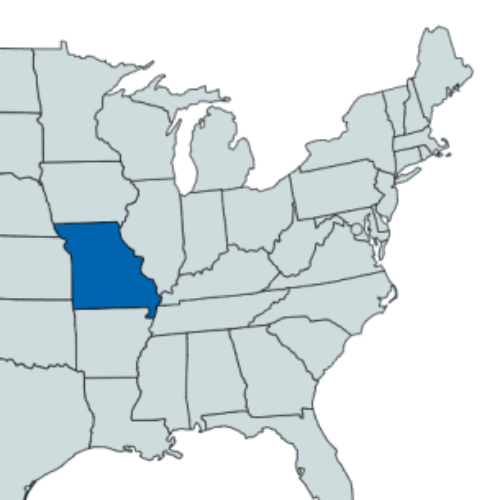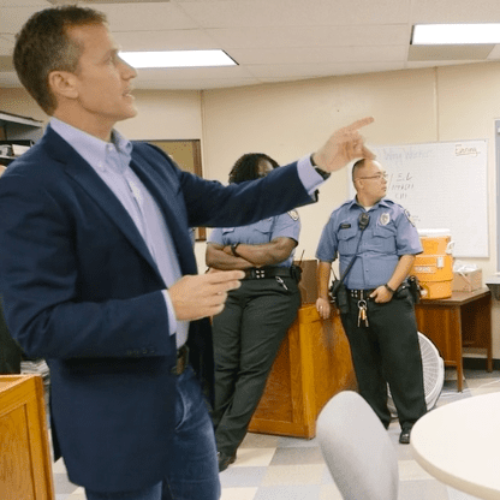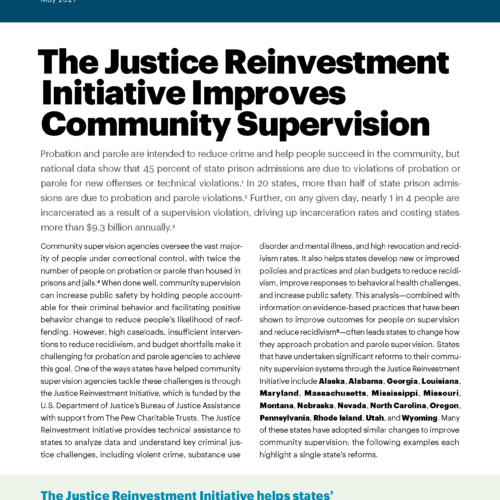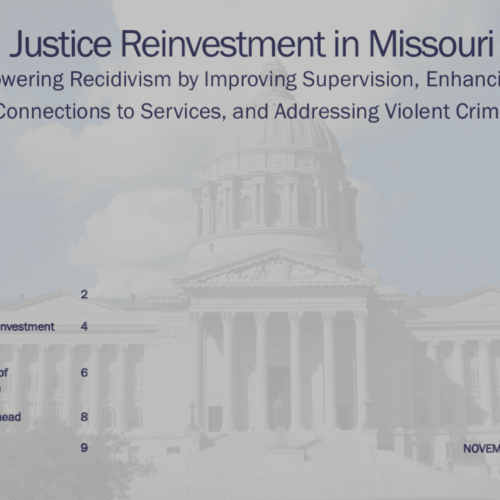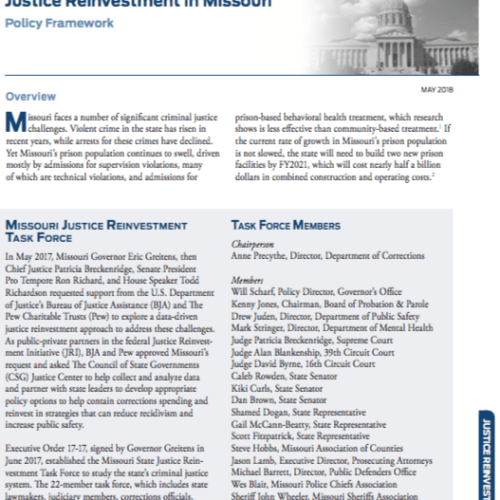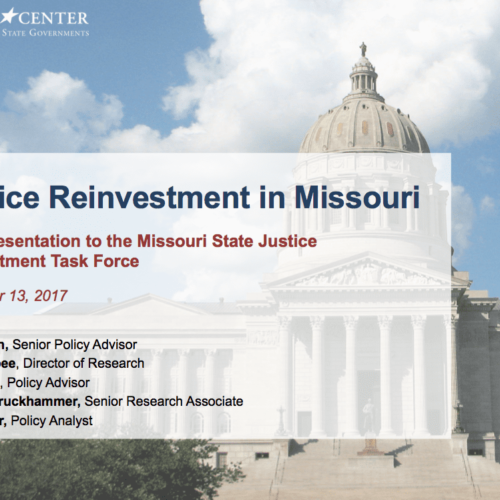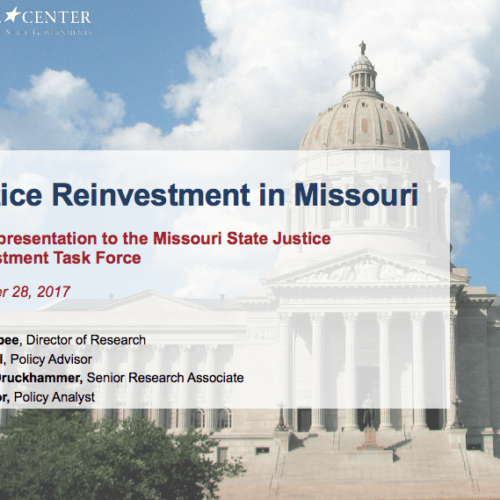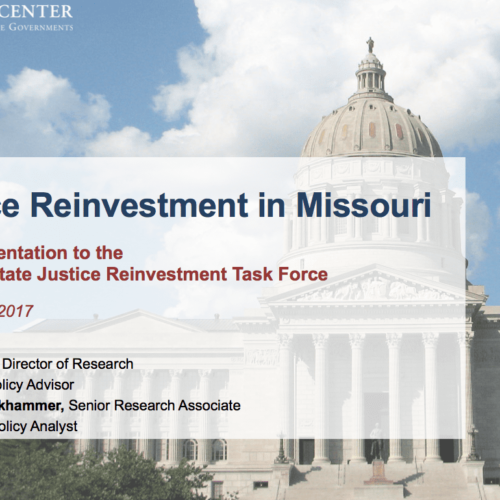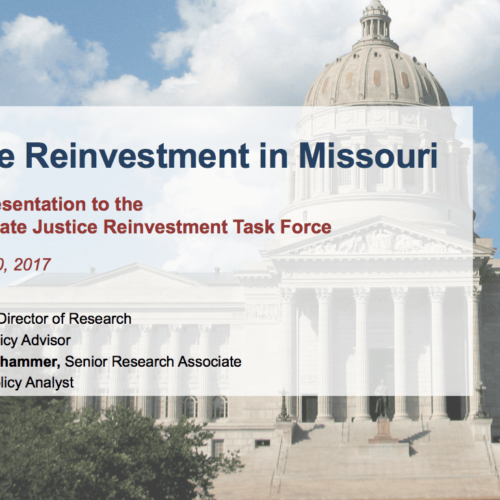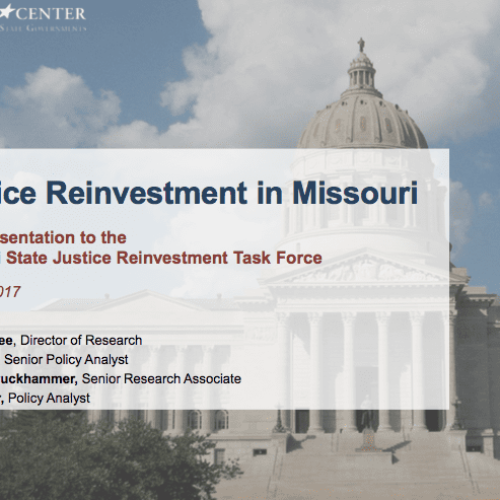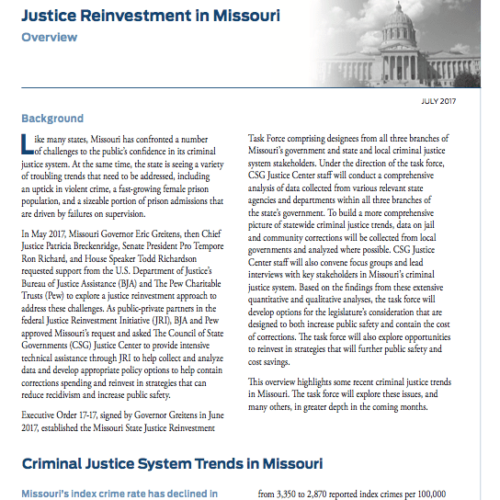Justice Reinvestment in Missouri
The Problem
In 2017, violent crime in Missouri had risen in recent years, while arrests for these crimes had declined. At the same time, Missouri’s prison population was continuing to swell, driven mostly by admissions for supervision violations, many of which were technical violations, and admissions for prison-based behavioral health treatment, which research shows is less effective than community-based treatment. If the rate of growth in Missouri’s prison population was not slowed, the state would have needed to build two new prison facilities by 2021, which would have cost nearly half a billion dollars in combined construction and operating costs.
How JRI Helped
To address these challenges, Missouri leaders requested and received support from the U.S. Department of Justice’s Bureau of Justice Assistance (BJA) and The Pew Charitable Trusts (Pew) in May 2017 to utilize a Justice Reinvestment approach to study the state’s criminal justice system, with intensive technical assistance from the CSG Justice Center. The bipartisan Missouri State Justice Reinvestment Task Force—which included designees from all three branches of government and state and local criminal justice system stakeholders—was formed to support this work.
The task force worked with CSG Justice Center staff to review analyses and develop policy options to reduce violent crime, improve community-based treatment, reduce recidivism, and invest in strategies to increase public safety. Many of these policies are reflected in HB 1355, which was signed into law in June 2018.
Implementation and Impacts
This comprehensive Justice Reinvestment legislation aims to provide resources to local law enforcement to help reduce violent crime, increase community-based treatment for people in the criminal justice system who have substance addictions and mental illnesses, and increase support for victims, among other measures. The state expects to reduce recidivism and avert $485 million in corrections costs by 2023.
In 2018, Missouri began piloting the Justice Reinvestment Initiative Treatment Program (JRITP) in three sites across the state. Using $5 million in allocated funding, the JRITP provides comprehensive community-based services to people under Department of Corrections supervision who have serious substance use disorders, focusing the highest intensity substance use disorder treatment services on the highest risk/highest need people on probation or parole supervision.
JRITP has since transitioned into a sustained community program, renamed the Improving Community Treatment Success (ICTS) program, with providers serving individuals in 12 locations across the state.












